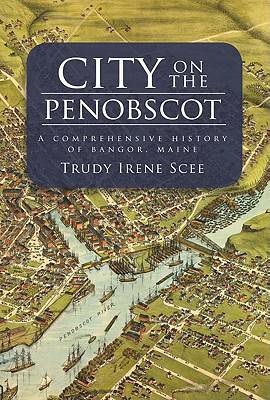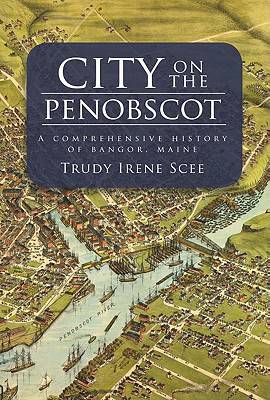
Bedankt voor het vertrouwen het afgelopen jaar! Om jou te bedanken bieden we GRATIS verzending (in België) aan op alles gedurende de hele maand januari.
- Afhalen na 1 uur in een winkel met voorraad
- In januari gratis thuislevering in België
- Ruim aanbod met 7 miljoen producten
Bedankt voor het vertrouwen het afgelopen jaar! Om jou te bedanken bieden we GRATIS verzending (in België) aan op alles gedurende de hele maand januari.
- Afhalen na 1 uur in een winkel met voorraad
- In januari gratis thuislevering in België
- Ruim aanbod met 7 miljoen producten
Zoeken
€ 55,45
+ 110 punten
Omschrijving
The first settlers of what would become Bangor, Maine, established a community initially known as Kenduskeag Plantation, and since that time, generations of residents have relied on the Penobscot River for food, water, recreation, industry and transportation--it has provided a route to the ocean and to the world. The people of Bangor created a community that has remained dedicated not only to economic growth but also to providing for the needs of the impoverished. A leading port city and the lumber capital of the world during the nineteenth century, Bangor also claims America's second oldest garden cemetery, an unrivaled public library, the nation's oldest community orchestra and one of its oldest community bands. Citizens of Bangor have served in the Civil War and all subsequent American military engagements. They have overcome fires and floods that decimated the city and epidemics that devastated the population. They have known colorful and notorious characters, such as local brothel owner Fan Jones and America's public enemy number one, Al Brady, as well as dedicated individuals and families who have served as community leaders and caretakers year after year, decade after decade. And they have adapted to such modern socioeconomic challenges as evolving transportation methods, the Ku Klux Klan, urban renewal and the city's shift to a distribution and service center. Historian Trudy Irene Scee presents all of this and more in this full history of the Queen City of the East.
Specificaties
Betrokkenen
- Auteur(s):
- Uitgeverij:
Inhoud
- Aantal bladzijden:
- 576
- Taal:
- Engels
- Reeks:
Eigenschappen
- Productcode (EAN):
- 9781596291911
- Verschijningsdatum:
- 14/12/2010
- Uitvoering:
- Paperback
- Formaat:
- Trade paperback (VS)
- Afmetingen:
- 157 mm x 229 mm
- Gewicht:
- 1038 g

Alleen bij Standaard Boekhandel
+ 110 punten op je klantenkaart van Standaard Boekhandel
Beoordelingen
We publiceren alleen reviews die voldoen aan de voorwaarden voor reviews. Bekijk onze voorwaarden voor reviews.









